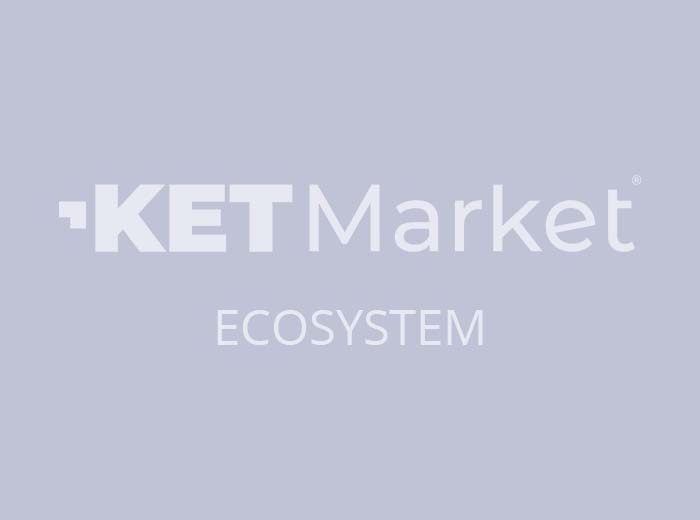
BMBF funding call – Optimal Therapy through Data-Driven Decision Making and Support Systems
Purpose of the funding prgramme
The purpose of the funding guideline is the promotion of research and development on data-driven decision-making and support systems for optimal therapy choice, continuous therapy control, and therapy success prognosis for medical practice. In the context of joint projects from SMEs, research institutions, and clinics, both the pooling of expertise and a rapid transfer into healthcare should be ensured.
The results of the funded project may only be used in the Federal Republic of Germany or the European Economic Area (EEA) and Switzerland. 1.3 Legal Basis
The Federal Government grants subsidies according to this funding guideline, §§ 23 and 44 of the Federal Budget Code (BHO) and the administrative regulations issued for this purpose, as well as the "Guidelines for Grant Applications on an Expenditure Basis (AZA/AZAP/AZV)" and/or the "Guidelines for Grant Applications on a Cost Basis from Companies in the Commercial Sector (AZK)" of the BMBF. There is no entitlement to the grant. Rather, the granting authority decides at its dutiful discretion within the framework of the available budgetary funds.
According to this funding guideline, state aid is granted on the basis of Article 25 paragraph 2 letters a to d of the General Block Exemption Regulation (GBER) of the EU Commission.1 The funding is granted with due regard to the Common Provisions set out in Chapter I GBER, in particular taking into account the definitions in Article 2 of the Regulation (see Annex on state aid requirements for the funding guideline).
Scope
Here's the translation of the provided text from German to English:
04.10.2023 - 29.02.2024
Guidelines for the Promotion of Projects on the Topic "Optimal Therapies through Data-Driven Decision-Making and Support Systems", Federal Gazette of 04.10.2023
As of 12.09.2023 1 Funding Objective, Purpose of the Grant, Legal Basis 1.1 Funding Objective
For many diseases, choosing the appropriate therapy forms the basis for the further course and success of treatment. The goal of the funding is to optimize patient care through medical technology solutions in the form of innovative decision-making and support systems. Data-driven approaches should support the treating personnel at all stages of the care chain to achieve better healing or a reduction of side effects.
These funding objectives correspond to the goals of the specialized program in Medical Technology, with which the Federal Ministry of Education and Research (BMBF) supports research and development in innovative medical technology under the premise "improve patient care, strengthen innovation."
The specialized program is derived from the central recommendations of action of the National Strategy Process "Innovations in Medical Technology" and is embedded in the Future Strategy Research and Innovation and the Framework Program Health Research of the Federal Government. This funding guideline addresses the fields of action "Patient Benefit" and "Innovation Driver" of the specialized program in Medical Technology. At the same time, the innovation power of small and medium-sized enterprises (SMEs) in medical technology should be strengthened. 1.2 Purpose of the Grant
The purpose of the funding guideline is the promotion of research and development on data-driven decision-making and support systems for optimal therapy choice, continuous therapy control, and therapy success prognosis for medical practice. In the context of joint projects from SMEs, research institutions, and clinics, both the pooling of expertise and a rapid transfer into healthcare should be ensured.
The results of the funded project may only be used in the Federal Republic of Germany or the European Economic Area (EEA) and Switzerland. 1.3 Legal Basis
The Federal Government grants subsidies according to this funding guideline, §§ 23 and 44 of the Federal Budget Code (BHO) and the administrative regulations issued for this purpose, as well as the "Guidelines for Grant Applications on an Expenditure Basis (AZA/AZAP/AZV)" and/or the "Guidelines for Grant Applications on a Cost Basis from Companies in the Commercial Sector (AZK)" of the BMBF. There is no entitlement to the grant. Rather, the granting authority decides at its dutiful discretion within the framework of the available budgetary funds.
According to this funding guideline, state aid is granted on the basis of Article 25 paragraph 2 letters a to d of the General Block Exemption Regulation (GBER) of the EU Commission.1 The funding is granted with due regard to the Common Provisions set out in Chapter I GBER, in particular taking into account the definitions in Article 2 of the Regulation (see Annex on state aid requirements for the funding guideline). 2 Subject of the Funding
The subject of the funding includes industry-led, high-risk, and pre-competitive projects in the form of joint projects of research institutions, clinical facilities, and small and medium-sized enterprises for the research and development of decision-making and support systems for medical practice. Funding projects should address a demonstrable medical need by aiming for a significant advancement in choosing the right treatment or continuous therapy optimization. For an accelerated transfer of research innovations into broad healthcare, industrial partners are encouraged to quickly convert the results into a certified medical product after the project.
As a methodological basis, data-driven approaches should be primarily used, as they are typically used in artificial intelligence (AI) methods or machine learning. However, the algorithmic approach can also rely on rule-based or classical classification methods. An important aspect is the traceability of decision-making for the user. Data protection and sovereignty must be considered in all methods.
In certain fields such as radiology, significant progress in decision support is already evident through AI applications. Given the generally still high demand, funded research and development projects can cover all areas of medical care.
The following topics can be addressed:
- Optimal initial therapy choice: Often, when non-specific symptoms are present or after diagnostic examinations, different treatments are possible. By choosing the individually best therapy, less effective measures or those with significant side effects can be avoided, thus achieving the best possible treatment success.
- Acute measures: In emergency and intensive care medicine or during surgical interventions, decisive therapeutic decisions often have to be made under time pressure, often without having complete diagnostic data on the situation. Decision-making and support systems can be helpful here.
- Continuous therapy control: For longer-lasting treatments - for example, in chronic diseases - therapy can be individually adapted, supplemented, or possibly terminated over the course of treatment, thus increasing treatment success.
- Therapy success prognosis: Before deciding whether a particular therapy is suitable
Projects in application areas not explicitly mentioned can also be funded, as long as the medical technology solution approaches make a significant contribution to therapy success. Close cooperation between diagnostic and therapeutic actors should be sought.
Exclusively molecular biological approaches or bioinformatic analyses are not the focus of this funding guideline but can be included in the respective decision-making process.
Medical technology solutions in the context of this funding measure are care solutions that include a medical product as a central element. Under the term "medical product" in the sense of this announcement, all products defined as such according to the European legal framework for medical products in Article 2 number 1 of Regulation (EU) 745/2017 are included. The intended results should cover a proven medical or care need and/or contribute to increasing efficiency in healthcare.
The medical technology solutions should primarily address the first healthcare market. When submitting a project outline, funding applications, and during the project, the intentions for placing a medical product on the market should be presented in an exploitation plan. This funding guideline and the results of the funding projects will be evaluated in the context of the evaluations of the specialized program in Medical Technology, among other things, based on the defined programmatic success criteria.
The subject of the funding can include scientific-technological issues as well as preclinical investigations and early clinical feasibility studies. The latter should be suitable for evaluating the design concept of a medical product in development, adapting the necessary processes for the medical product following the funded research and development phase, or identifying necessary changes to the medical product or the associated examination and treatment procedures when using the medical product.
Early feasibility studies on patients or subjects require the necessary regulatory approvals and are to be limited to the scientifically justified and necessary extent in terms of prudent use of funds and are only permissible if the results cannot be worked out within the framework of suitable preclinical investigations.
Clinical trials as part of the clinical evaluation as a central component of the conformity assessment process are not the subject of the funding. Interested parties are asked to inform themselves about the funding opportunities of the funding measure "Transferring Medical Technology Solutions into Patient Care - Demonstrating Clinical Evidence Without Delay" of 24 April 2018 (BAnz AT 17.07.2018 B2), which was amended by the announcement of 1 February 2021 (BAnz AT 03.03.2021 B6); the submission of a project outline is possible at any time.
Eligibility Criteria
Eligible applicants are small and medium-sized enterprises of the commercial economy as well as universities, research clinics, and research institutions. At the time of disbursement of a granted subsidy, the existence of a business establishment or branch (company) or another facility serving the non-commercial activity of the grant recipient (university, research institution) in Germany is required. Large companies can only be involved as associated partners.
SMEs within the meaning of this funding guideline are companies that meet the requirements of the EU SME definition.2 The applicant declares his classification according to Annex I of the GBER to the granting authority in the context of the written application.
Research institutions that are fundamentally financed by the federal and/or state governments can only be granted project funding for their additional project-related expenses or costs under certain conditions.
For the conditions under which state aid exists and to what extent aid can be granted free of state aid, see the FuEuI Union framework.
Submission mode and timeline
The funding call follows a two stage submission regime.
Submission deadline for the first stage (submission of 10 page long short proposals) is 29th Feb. 2024.
Additional submission deadlines in upcoming years are expected considering the validity duration of the funding programme until 30. June 2027.
General Information
These funding objectives correspond to the goals of the specialized program in Medical Technology, with which the Federal Ministry of Education and Research (BMBF) supports research and development in innovative medical technology under the premise "improve patient care, strengthen innovation."
The specialized program is derived from the central recommendations of action of the National Strategy Process "Innovations in Medical Technology" and is embedded in the Future Strategy Research and Innovation and the Framework Program Health Research of the Federal Government. This funding guideline addresses the fields of action "Patient Benefit" and "Innovation Driver" of the specialized program in Medical Technology. At the same time, the innovation power of small and medium-sized enterprises (SMEs) in medical technology should be strengthened.

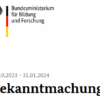
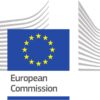
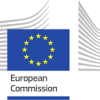

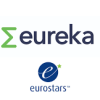
BMBF funding call – Optimal Therapy through Data-Driven Decision Making and Support Systems 0 reviews
Login to Write Your ReviewThere are no reviews yet.